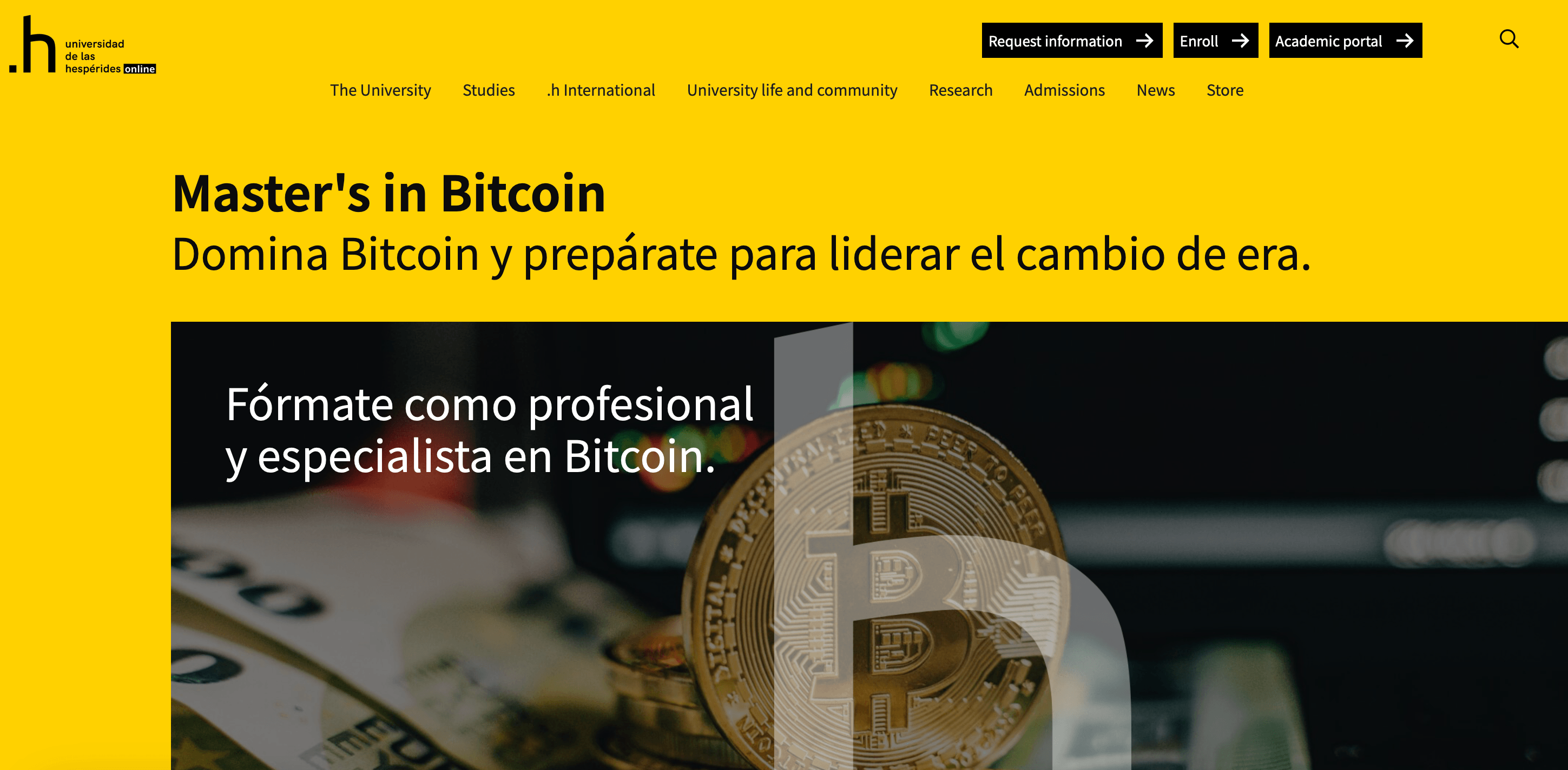The program, taught entirely in Spanish and awarding 60 ECTS credits, targets entrepreneurs, engineers, lawyers, and investors. Its curriculum blends theory and practice, covering Bitcoin’s philosophy, technology, monetary theory, legality, and investment strategies.

Workshops on self-custody, proof-of-work (PoW) mining, and tax compliance are included, alongside bonuses like a Blockstream Jade hardware wallet and a book by program director Álvaro D. María. Led by María, author of “The Philosophy of Bitcoin,” and economist Juan Ramón Rallo, the faculty includes industry experts from firms like BTC Inc. and Jan3.
The university emphasizes partnerships with Bitcoin-centric companies to bolster networking and career opportunities for graduates. Enrollment involves an application review, documentation submission, and an admissions interview. Financing options are available, though specific costs are undisclosed.
The hybrid model offers asynchronous classes and optional in-person seminars in Santa Cruz de Tenerife and Las Palmas de Gran Canaria. The University of the Hespérides joins institutions like MIT and NYU in advancing Bitcoin education. For instance, MIT’s “Cryptocurrency Engineering and Design” course emphasizes Bitcoin’s technical architecture, including cryptography and decentralized systems,
Meanwhile, NYU’s “Law and Business of Bitcoin” explores regulatory frameworks and financial applications. Both programs, launched in recent years, reflect academia’s response to cryptocurrency’s growing influence. MIT also partners with industry leaders for hands-on projects, whereas NYU integrates case studies on Bitcoin’s legal challenges, mirroring global demand for interdisciplinary expertise.
Similarly, UC Berkeley and Duke University offer tailored programs bridging theory and practice. Berkeley’s “Blockchain Fundamentals” course, hosted on edX, dissects Bitcoin’s economic and technological foundations, while Duke’s “Innovation and Cryptoventures” focuses on entrepreneurial opportunities and debunking myths about cryptocurrencies.
These programs, alongside the University of Nicosia’s pioneering Master’s in Digital Currency, highlight a global shift toward formalizing Bitcoin education, equipping professionals to navigate its evolving role in finance and policy. As far as the University of the Hespérides, a shorter, 6-month postgraduate option is also available, but the master’s offers deeper specialization. The initiative reflects growing demand for Bitcoin expertise amid its rising global influence in finance and policy.
免责声明:本文章仅代表作者个人观点,不代表本平台的立场和观点。本文章仅供信息分享,不构成对任何人的任何投资建议。用户与作者之间的任何争议,与本平台无关。如网页中刊载的文章或图片涉及侵权,请提供相关的权利证明和身份证明发送邮件到support@aicoin.com,本平台相关工作人员将会进行核查。




